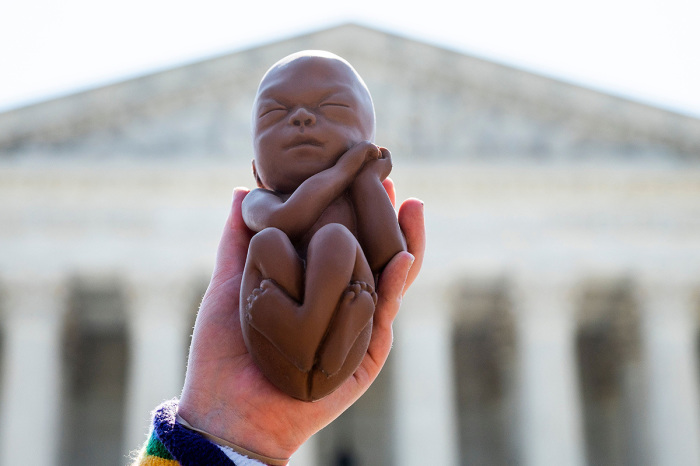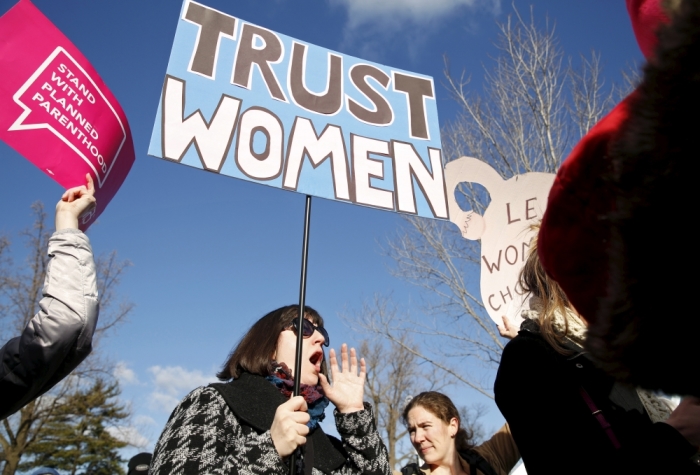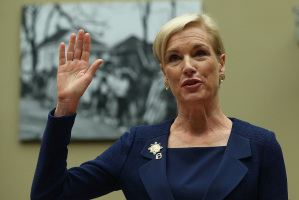States enacted 50 pro-life and 77 pro-abortion laws in 2022. What did your state do?

Fifty pro-life laws went into effect in 2022 as states took divergent directions on abortion policy following a major U.S. Supreme Court ruling that returned the debate about the polarizing public policy issue to the states.
The Guttmacher Institute, a pro-abortion advocacy group that previously served as the research arm of Planned Parenthood, has released a report examining state policy trends in 2022 related to abortion. The report, published Dec. 19, revealed the implementation of 50 pro-life laws in the past year, with near-total abortion bans becoming a reality in 12 states following the Supreme Court’s Dobbs v. Jackson Women’s Health Organization decision determining that the U.S. Constitution did not contain a right to abortion.
The Dobbs decision reversed the 1973 Roe v. Wade ruling that legalized abortion nationwide, thereby giving states more authority to regulate abortion. As the report sates, “Sixteen states have had a near-total abortion ban in effect at some point this year, and bans were in effect in 12 states as of Dec. 12: Alabama, Arkansas, Idaho, Kentucky, Louisiana, Mississippi, Missouri, Oklahoma, South Dakota, Tennessee, Texas and West Virginia.”
“In all of these states except West Virginia, the bans were on the books and ready to implement before the Supreme Court’s Dobbs decision. Near-total abortion bans in the four remaining states — Arizona, Indiana, Utah and Wyoming — have been temporarily blocked by litigation,” the report added.
In the years leading up to the Dobbs decision, many states enacted “trigger laws,” abortion bans that would take effect if Roe were ever overturned. This year, state legislatures nationwide implemented additional pro-life measures as laws restricting or banning abortion faced court challenges.
“Since the Dobbs decision, several states have enacted new bans on abortion at certain points of pregnancy,” wrote co-authors Elizabeth Nash and Peter Ephross. “Three states (Georgia, Ohio and South Carolina) implemented bans starting at six weeks of pregnancy, two (Arizona and Florida) implemented 15-week bans, Utah enforced an 18-week ban and North Carolina imposed a 20-week ban.
The Guttmacher Institute elaborated on pro-life laws passed at the state level this year in a “State Legislation Tracker.” Additional legislation took effect in 2022, including a West Virginia law banning abortions based on genetic abnormalities in addition to measures restricting access to chemical abortions in Kentucky, Louisiana, South Dakota and Tennessee.
Additionally, Arkansas, Florida, Kansas, Louisiana, Michigan, Mississippi, Missouri, North Carolina, Ohio and Pennsylvania allocated funding to pro-life pregnancy centers. A measure allowing healthcare providers, institutions and healthcare plans to opt out of providing or funding abortions if doing so violates their deeply held religious or moral beliefs took effect in South Carolina.
The 50 pro-life laws enacted by states in 2022 amount to less than half the 108 such measures passed in 2021.

However, there were also a number of pro-abortion laws defined as “protective measures” by Guttmacher that skyrocketed from 10 in 2021 to 77 in 2022. The so-called protective measures were designed to expand access to abortion.
Examples of protective measures that took effect in 2022 include the allocation of taxpayer dollars to “reproductive health care” and abortion funds in California, Illinois, Massachusetts, New Jersey, New York and Oregon, and an executive order in New Mexico authorizing the construction of a new abortion clinic near the state’s border with Texas.
The State Legislation Tracker outlined additional examples of “protective measures,” including the expansion of abortion coverage in Medicaid plans in California, Maryland, Massachusetts, New York and Oregon. Four of the five states expanding the availability of abortions through Medicaid, with Oregon as a holdout, also expanded access to abortion in private healthcare plans.
The state of Colorado codified the right to abortion into state law while Massachusetts adopted legislation establishing a right to both abortion and “gender-affirming” healthcare for the trans-identified community.
Guttmacher’s year-end report categorized each state on a scale ranging from “most restrictive” to “most protective.” The 12 states labeled as “most restrictive” all have near-total abortion bans in effect: Alabama, Arkansas, Idaho, Kentucky, Louisiana, Mississippi, Missouri, Oklahoma, South Dakota, Tennessee, Texas and West Virginia.
Arizona was the only state classified as “very restrictive” while the states of Florida, Georgia, Iowa, Kansas, Nebraska, North Carolina, North Dakota, Ohio, Pennsylvania, South Carolina, Utah and Wisconsin have abortion policies on the books deemed “restrictive” by Guttmacher. States with middle-of-the-road abortion policies, having what Guttmacher called “some restrictions/protections,” are Delaware, Michigan, Minnesota, Montana, Nevada, New Hampshire, Rhode Island, Virginia and Wyoming.
Colorado, Connecticut, Illinois, Maryland, Massachusetts and Washington have “protective” abortion laws, as defined by Guttmacher. Guttmacher describes the abortion laws in Alaska, California, New Jersey, New Mexico, New York and Vermont as “very protective” while Oregon has the “most protective” abortion policies.
Susan B. Anthony Pro-Life America, an advocacy group that has compiled its own map illustrating the differences in state laws on abortion, estimates that more than 125,000 babies have been saved from abortion in states with total or near-total bans on abortion. The organization contends that a 15-week abortion ban in Florida and additional pro-life laws currently struck down by court orders have prevented nearly 50,000 additional abortions.
While not mentioned in the report, 21 cities declared themselves “sanctuary cities for the unborn” in 2022, bringing the number of cities that outlaw abortion within their city limits to 60. Lea County, New Mexico has taken the step of banning abortion within the unincorporated parts of the county, which is located in a state where abortion remains legal following the Dobbs ruling. All of the “sanctuary cities for the unborn” are located in Texas, Nebraska, Ohio, Louisiana, Iowa and New Mexico.
Ryan Foley is a reporter for The Christian Post. He can be reached at: ryan.foley@christianpost.com





























